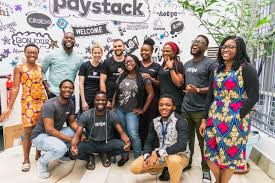Important Lessons from Paystack’s 5 Years of Remarkable business in Nigeria
Paystack is one of Nigeria’s largest payments startups, processing nearly 20% of all online transactions in Africa’s largest economy. Paystack as a Nigeria based online payment processing company that prides itself as a growth engine for modern businesses in Africa. Paystack builds technology to help Africa’s best businesses grow – from new startups, to market leaders launching new business models. Their goal is to make it easy for businesses to accept secure payments from multiple local and global payment channels, and then provide tools to help businesses retain existing customers, while acquiring new ones. As a business entity, Paystack is inspired by a vision of millions of exceptional businesses across the continent who’re profitable, envied, and loved. Paystack believes that while it exists, businesses in Africa will routinely go toe to toe with the best companies on the planet, and win.
With PayStack, you can get paid even if you don’t have a website. Create a Payment Page in 2 minutes and share the link via SMS, Instagram DM, WhatsApp chat, or however you communicate with your customers. No developers needed and your customers will be able to click and pay you instantly.
Also, PayStack helps you to monitor your business performance while on the move. Paystack allows you to track your most important business metrics on your mobile device, monitor info such as sales, customer information, success rates, and more. On PayStack’s website or mobile app, you’re able to sign up in minutes and send invoices from your phone, look up transactions, get alerts for important updates, and get instant support.
How it all started
In 2014, Shola Akinlade, cofounder and CEO of PayStack, realized an opportunity to solve a payments problem. He was helping some Nigerian banks with financial software at that time. Akinlade put out a waitlist for people to try out the software he was building and within one month, there were 300 people on the list. Today, six years later, Paystack, the company Akinlade cofounded with Ezra Olubi not only serves about 60,000 businesses, it has been acquired by a USA based payments giant, Stripe. Stripe acquired the Nigerian fintech startup, Paystack for over $200 million and that is over N78Billion in Nigerian currency. Paystack powers growth for businesses in Africa through its collection of secure payment tools.
 Important Lessons from Paystack’s 5 Years of Remarkable business in Nigeria
Important Lessons from Paystack’s 5 Years of Remarkable business in Nigeria
Now, the question on the lips of an average Nigerian following the news of PayStack’s acquisition by Stripe is, “How on earth did a tech company that was started by two Nigerian undergrads roughly 5 years ago scaled so fast and attained such a high net worth?” How did Akinlade take the idea he had back in 2014 from conception to execution? How did he navigate the difficult business terrain in Nigeria to build an investable company? What are the details of the acquisition and what’s next for Paystack? What lessons can business owners in Nigeria and around the world learn from these two young Nigerians?
Looking at payStack’s story, the following are some of the lessons I personally learned, which I think are important for entrepreneurs to take a serious note of.
Lesson 1: They wanted to provide a solution
They (Sola and Ezra – PayStack cofounders) identified a ‘problem’, ‘need’, or ‘gap’ in the financial sector and B2B payments, and they moved to provide a quick solution to this gap. It was only a few years ago when these young chaps founded PayStack after identifying the said payment gap. They figured that they could use their background in software engineering and development to build world class software to tackle this issue, and so they got to work, developing the software even with little funds.
Read Also: How to develop Management Skills for Life and Business Success
Lesson 2: They believed in their dream.
You see, having a dream is one thing, believing in the dream is another thing entirely. The believe you have in your dream is what gives you the energy to pursue your dream. When you see someone who claims to have a dream but is not willing to stick out his neck for the sake of that dream, he really does not believe in the dream. As funny as this may sound, not everyone who has a dream believes in their dreams. The fact is, when you have a dream and do not believe in it, that dream cannot materialize. If it ever did, someone else materialized it! There are many people who see the dream they had many years ago but did not believe in being manifested by someone else who believe in the dream well enough to do something about it. The strong believe PayStack’s cofounders had in their dream was seen in the amount of work they had to do to get the dream off the ground, even in the midst of seemingly insurmountable challenges in the Nigerian business terrain.
Lesson 3: They took advantage of their network
So, Sola and his friend started working on the software which they were building and with which they hoped to close the payment gap they have discovered in the business space. While the software was still in the beta phase of development, a concerned friend pitched the idea on their behalf to Y-combinator, a Silicon Valley-based accelerator programme. Soon they were accepted, becoming the first Nigerian company to do so. Within six months, the startup was processing funds in the region of $200 per month. Barely a year after, it is processing over $200,000. Since its launch in early 2016, Paystack has partnered with over 1,300 merchants in Nigeria alone, including industry e-commerce pioneers such as Hotels.NG and Jobberman. Prior to Paystack, Shola co-founded Precurio, an open-source collaboration software for businesses in emerging markets which was downloaded over 150,000 times and made available in 6 languages.
Lesson 4: They had a higher, non-myopic perspective
When the news of PayStack’s acquisition broke on the internet, the first thought on some people’s minds was, “Why would these guys labour to build something that is set to be the next biggest thing on the continent – and then wake up one day with a decision to sell it off?” The greed for power and control is the sole reason why many Nigerian entrepreneur want to be the CEO of a company without wanting to share that power with anyone. This is one primary reason why many Nigerian start-up that could have had a monumental success are failing woefully because they lack this ability to want to part with something small for much bigger wins in business. For Paystack cofounders, the acquisition wasn’t a big issue – the amount of money involved on one side. As far as they were concerned, the acquisition deal will give the company a lot more fuel to build out further in Nigeria and expand to other markets, CEO Shola Akinlade said in an interview. “Paystack was not for sale when Stripe approached us,” said Akinlade. “For us, it’s about the mission. I’m driven by the mission to accelerate payments on the continent, and I am convinced that Stripe will help us get there faster. It is a very natural move.”
 Important Lessons from Paystack’s 5 Years of Remarkable business in Nigeria
Important Lessons from Paystack’s 5 Years of Remarkable business in Nigeria
The fact is, these guys could have been greedy or power/control-drunk and turned down Stripe’s offer, and the story would have been different altogether. This singular event made me remember the words of my mentor, Rev. Olusola Areogun, who said, “It is better to be number two of something way bigger, than number one of nothing, or something very small”.
Hope you enjoy this article?
Share your thoughts in the comment session.
Contact us today for your business consultancy and business advisory services. We can help you fine tune your idea, structure your business, market your business, train your staff, consult on your retirement plan, coach you for financial success. We also write business plan and help with fund raising strategies and Grant applications. We can help you start, grow and expand your business.
Call or WhatsApp us now on 081 0563 6015, 080 7635 9735, 08113205312 or send email to dayohub@gmail.com and we will solve any of your business problem.
Related